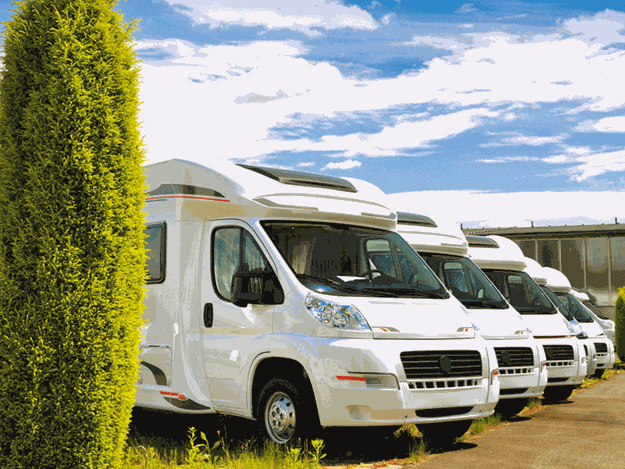One of the significant benefits of buying through a dealer is that dealers must comply with the Consumer Guarantees Act and the Fair Trading Act and may offer specific warranties on a vehicle for sale.

Not so if you buy privately. Doing so may save money, but in most cases, you have no comeback if something fails. That said, there are far more motorhomes for sale privately, and anecdotal evidence suggests more RVs are sold privately than through dealers. Either way, there are steps buyers can take to reduce the chances of buying a lemon.
Is the seller the owner?
You can do a few things to avoid buying a stolen vehicle. View the RV at the seller’s home and check the address is the same on the registration papers. Also, make sure the VIN number matches the RV and rego papers. A TXTB4UBUY search through the Personal Properties Security Register (ppsr.companiesoffice.govt.nz) costs $3 and can determine if money is owed on the RV.
A second pair of eyes
It is a good idea to take someone – preferably with RV experience – with you when examining a potential purchase. They will see things you can’t and ask questions you don’t. A test drive of the vehicle on the highway and city streets, on the flat and the hills, is an essential part of the buying process. Check with the owner that his or her insurance covers you for the test drive. If you are not qualified to assess the vehicle, get someone who is to check it over.
Paperwork
Check that the rego, road-user charges (RUC), warrant/certificate of fitness (WoF/CoF), electrical WoF and the Certified Self Contained (CSC) are up to date. It is helpful if the seller has user guides for the vehicle and all the equipment aboard. If not, much of the information is available on the internet.
Water tightness
Inside the RV, sniff around. Musty smells indicate dampness and/or mould that could be caused by a leak. If it is a leak, take care before buying. Leaks lead to rotting framework and delaminated floors. If a floor feels ‘spongy’, it may mean it has delaminated.
Water-leak damage is costly to repair. If there are any doubts, consider having a professional carry out a damp test. Note; check the undersides of mattresses and cushions for dampness. Caused by poor ventilation, damp is another common cause of mould and musty smells.

Electrics
Does all the12-volt electrical equipment work? Try the lights, water pump, toilet flush if it is electric, radio and TV and the piezo starters on LPG hobs and heaters. Since about 2000, UK/Euro basin taps contain a micro-switch to activate the water pump.If a tap doesn’t work, it may be because the micro-switch is faulty and needs replacing.
Inspect the house battery. How old is it? How reliable? Ask if it has caused any trouble. What charging system keeps it charged? If the sides and/or top of the battery ‘bulge’, it is a sign it has been charged incorrectly and could soon be unreliable.
If the RV is fitted with solar panels, what wattage are they, and what type and size regulator controls them? MPPT regulators are more expensive but are far more efficient and worth the extra cost. If you have doubts about the electrics, employ an electrician familiar with 12V systems to check them for you.
Don’t forget to examine the 240-volt power points and switchboard. Fridges, water heaters and space heaters often operate on multiple power sources (e.g. LPG, 240-volt, 12-volt). If you have time, check that they will run on all their energy-source options.
LPG
Ten years after the date of manufacture, RV-sized LPG bottles must be re-tested before they can be refilled. The manufacture date (or initial test date) should be stamped on the neck of the bottle. Make sure the oven, grill and hob all work. Also, check that the water heater and space heater are functioning on both LPG and 240V.
Odds and ends
Does all the plumbing work properly; shower, flushing toilet and basin taps? Do the handbasin, sink and shower tray drain immediately? Remove the toilet cassette to check that the space below the toilet – and the outside of the cassette – are clean and dry.
Lie on the beds. Are they comfortable? And if there is one, can you get in and out of the bed in the Luton above the cab? If the lounge settees convert into a double bed, check the bed-base arrangements are satisfactory and that all the necessary cushions needed to make up the bed are available.
Has work been done on the RV? Whether it is mechanical work or equipment installation (e.g. fitting a TV satellite dish or a bike rack), ask the seller for the receipts. Has a reputable repairer done the work? If there is a weighbridge handy and the owner agrees, weigh the RV to confirm it has sufficient payload for your needs (GVW less weighbridge weight = payload).
Crunch time
Finally, step back and have a look at the total package. If you like what you see and have a good feeling about both the RV and the person selling it, go to the next stage and make an offer. Don’t be afraid to haggle.





